Rwandan power plant converts methane from exploding lake into clean energy
3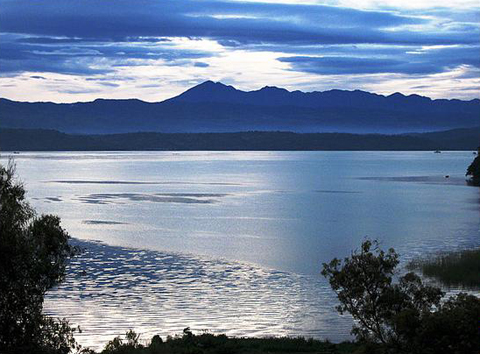
Lake Kivu
A power plant in Rwanda is extracting methane from the depths of Lake Kivu and converting it into electricity. This is the first time such a procedure has been conducted anywhere in the world.
The state-owned Kibuye Power plant is an offshore barge that draws water up from 250 feet below the surface. Methane is extracted from the water and pumped to the shore where it powers three large generators. The operation is producing 3.6 megawatts of electricity (more than 4% of Rwanda’s total supply). Kibuye Power plans to increase this output to 50 megawatts in the next few years.
Lake Kivu is unique in that it is just one of three known “exploding lakes” where volcanic gases collect in the cold, dense water at the lake bottom. Being the largest exploding (or turnover) lake, Kivu poses a threat that dwarfs previous catastrophes at Lakes Momun and Nyos. Geological evidence from around the lake shows that mass biological extinctions occur roughly every millennium. Unknown events trigger the deep gas-laden water to surface (effectively turning the lake over) and release a cloud of CO2 into the atmosphere.
Two lake turnovers occurred in Cameroon in the 1980s. A sudden outgassing of CO2 killed 37 people near Lake Momum in 1984. Just two years later, a limnic eruption at Lake Nyos released 1.6 million metric tons of CO2. The gas cloud hugged the surrounding valley, displacing air and suffocating more than 1,700 people. Many more thousands developed serious respiratory problems.
Kivu is 2,000 times larger than Nyos and surrounded by a population of approximately 2 million people. If an eruption were to occur, the results could be cataclysmic. This is a well-known danger to locals, who refer to pockets of CO2 that sometimes rise from the lake as “evil winds.” Deaths reported from these “winds” occur fairly regularly.
Cindy Ebinger, professor of earth sciences at the University of Rochester, described Kivu as “one of the most dangerous lakes in the world.” She warned that while reducing the overall concentration of gas in the water is a positive move, more studies are needed to assess the potential environmental impact.
Future power plants could increase the risk of eruption if degassed water is returned to the lake bottom. Experts have called for strict regulations to ensure the deep, gas-laden water is not aggravated. Dissolved oxygen and nutrient levels should be monitored to ensure the resident fish population is not threatened.
U.S. energy company Contour Global signed a $325 million contract with the Rwandan government last year to establish a 100-megawatt methane power plant on Lake Kivu. Other interested parties are in talks with the Democratic Republic of Congo, which has rights to half the natural gas in the lake, about building a 200-megawatt plant on their side of Kivu.
Despite the risk, extracting the gas is still in the best interest of the local population, according to Ebinger. The extraction mitigates dangers associated with the natural release of lake gases while providing an environmentally friendly source of energy, she said. It is estimated that the lake contains enough methane to power Rwanda for 100 years.
Rwanda harnesses volcanic gases from depths of Lake Kivu [The Guardian] Rwanda Harnesses Energy from Exploding Lake [Discovery News] Tapping Methane at Lake Kivu in Africa [The New York Times] Can A Killer Lake Solve Rwanda’s Energy Problem? [Time] Battle to degas deadly lakes continues [Nature Publishing Group]
Image Credit: http://www.flickr.com/photos/37773726@N08/4759200023/




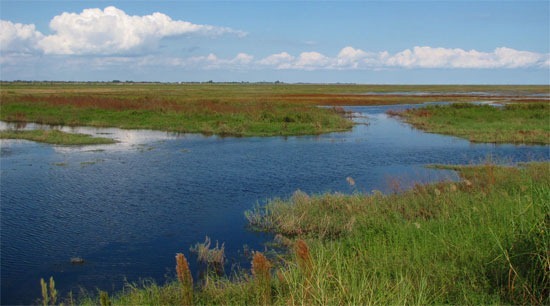
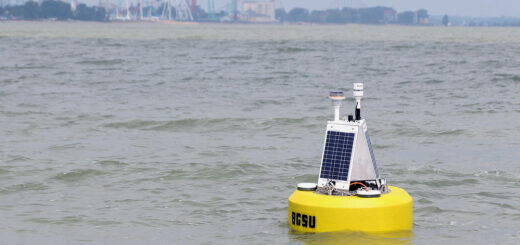

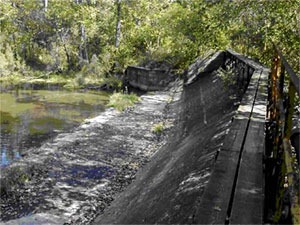



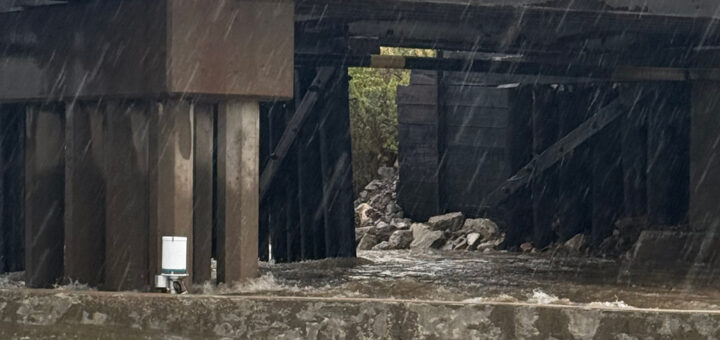
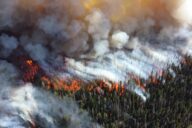

[…] Scientists attribute the loss of ice to global climate change, natural variability and regional weather patterns. To learn more about the Great Lakes, visit Lake Scientist’s section on extreme lakes: largest lakes. […]
While it is impressive that the govt has a mechanism that is already exploiting the gas, the major question I have is how much more is needed to exploit for it to remain at safe levels?, is there any way Kenya would benefit from a direct pipeline to the lake?
[…] few years back, the government of Rwanda—which shares the lake with the DR Congo—built the Kibuye barge to extract methane and convert it into electricity, both to power the country and get a […]